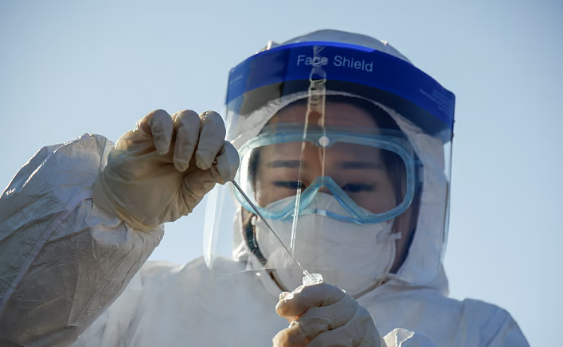Southeast Asia is witnessing a significant uptick in COVID-19 cases, with health authorities in Hong Kong and Singapore raising alerts over a sharp rise in infections, even as hospitals continue to manage the situation.
In Hong Kong, officials are closely monitoring what they describe as a marked resurgence of the virus. Albert Au, head of the Communicable Disease Branch at the Centre for Health Protection, told local media this week that virus activity is now “quite high.” According to the Centre’s data, the city’s infection rate has jumped from 1.7% in mid-March to 11.4% — surpassing the peak recorded in August 2024. Over the past month, 30 deaths linked to COVID-19 have been reported, according to the South China Morning Post.
Singapore is also grappling with a surge in cases. Between April 27 and May 3, the country recorded 14,200 new infections — a 28% increase compared to the previous week’s 11,100 cases. Wastewater surveillance data also revealed a high concentration of the virus, indicating widespread community transmission.
Despite the rise in cases, Singapore’s Ministry of Health stated in a May 13 update that current variants do not appear to be more transmissible or cause more severe illness than previous strains. The ministry noted that hospitals are coping with the increased caseload. Average daily COVID-19 hospitalizations rose from 102 to 133, while the number of patients in intensive care units actually declined, from an average of three to two cases per day.
China and Thailand have also reported an increase in infections, though specific figures have not yet been released. Health officials across the region are urging residents to remain cautious, especially as international travel and large gatherings resume.
Authorities in affected countries have not yet announced new restrictions but continue to recommend precautionary measures, including mask-wearing in crowded areas, regular hand hygiene, and vaccinations.
The latest spike serves as a reminder that while the global emergency phase of the pandemic may be over, COVID-19 continues to pose a public health challenge. Regional health officials are calling for continued vigilance to prevent further spread and ensure healthcare systems are not overwhelmed.


